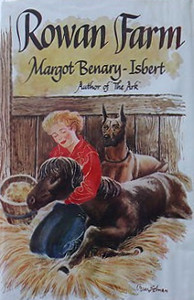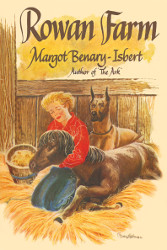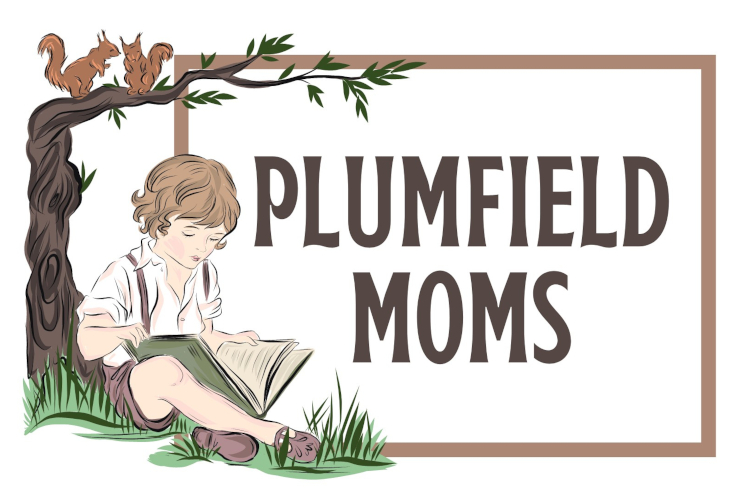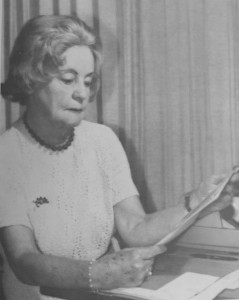Rowan Farm

Author:
Margot Benary-Isbert ![]()
![]() Complete Authored Works
Complete Authored Works
Original language:
German
Translator:
Richard Winston, Clara Winston
Publication:
1954 by Harcourt, Brace and Company
Genre:
Fiction, Historical Fiction
Pages:
277
Current state:
This book has been evaluated and information added. It has been read but content considerations may not be complete.
Book Guide
Search for this book used on:
January 1948 began a wonderful year for the Lechows. With Father newly returned to Western Germany from a Russian prison camp, they were together again and could enjoy a measure of security and happiness in The Ark, their railroad-car home on Rowan Farm.
It was a year that held for sixteen-year-old Margret, in particular, both joy and sorrow. She found real satisfaction in entering Mrs. Almut's Great Danes in two important shows and in raising several young animals which were her very own. She felt a vague unhappiness, however, when Mrs. Almut's son, Bernd, as well as her own teacher Matthias, succumbed to the charms of an attractive, but superficial girl from Frankfurt. But Margret had little time to brood. There was the much-abused Shetland pony whose life she was determined to save. There was, too, the problem of Andrea, her younger sister, whose flair for the dramatic landed her in serious difficulties at school. And Joey and Ull, the enterprising eight-year-olds, kept Margret in a constant state of uncertainty with their magnificent ventures. The year brought Margret new friends as well—among them the resourceful young school master with his plan for rebuilding a bombed-out farm, and the American woman, working in Germany with the Friends' Service Committee.
As in The Ark, her previous book about the Lechow family, Mrs. Benary mirrors the slow changes of the seasons, come war or peace, the burgeoning of life in the spring and with it a renewal of man's hopes. Once again she creates real people whose joys and disappointments are universally understood, and above all she leaves with her readers a sense of courage and of faith all too rare in books today.
From the dust jacket
To view an example page please sign in.
To view awards and booklists please sign in.
To view the original book please sign in.
To view the prequel to this book please sign in.

![]()
Rowan Farm Revised
Reprinted in 2020 by Purple House Press
Available formats: Hardcover, Paperback
View on the Purple House Press site
This edition was "slightly revised" by the publisher. To learn more, visit the FAQ page.
Content Guide
Please sign in to access all of the topics associated with this book and view other books with the same topics.
Please sign in to access the locations this book takes place in and view other books in the same location.
Please sign in to access the time periods this book takes place in and view other books in the same time period.
For information about the lead characters please sign in.
Please sign in to access information about the content of this book that you may want to consider before reading.
Reviews

Rowan Farm
This has such a quality of warm, authentic writing that one recalls its predecessor, The Ark (1953- p. 41) with considerable...

Rowan Farm
Reviewed by Sara Masarik
Just like the first book, this one too reminds me of James Herrriot, Gene Stratton-Porter, and Hilda van Stockum. As the people of West Germany are beginning to be less hungry and a little more comfortable, we see people finding a way to really live and not just survive. Musicians are wanted again, dances are happening in barns, Protestants and Catholics are working together to rebuild their communities, American charities are sending aid, and young people are falling in love. But, this is still post-war Germany, and the challenges are still immense. Refugees from Russian-occupied East Germany are pouring into West Germany, veterans are scarred and wounded in mind and body, food and materials continue to be scarce, and a huge volume of war-made orphans are struggling to survive. We do have one caution/warning and beg you to read the full review before handing this book to a child.
Find This Book
Search for this book used on:


